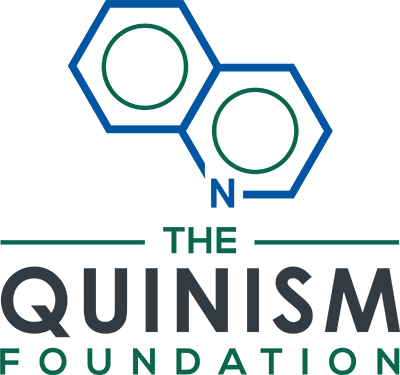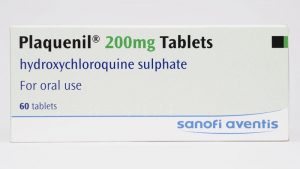The FDA Approves Chloroquine and Hydroxychloroquine for Emergency Use Against COVID-19
At the apparent direction of the White House, the FDA has rapidly granted limited emergency authorization for certain uses of chloroquine and hydroxychloroquine against COVID-19.
According to the terms of the FDA’s emergency use authorization, which declares these drugs as pandemic countermeasures under the PREP Act and therefore provides for strong liability protections, physicians may reasonably prescribe these drugs at any dose to hospitalized patients without fear of legal liability. These strong legal protections extend to supplies of these drugs distributed only through the Strategic National Stockpile, to include formulations of these drugs not previously approved by the FDA, such as Bayer’s Resochin-branded formulation of chloroquine phosphate.
Days prior to the FDA granting its emergency use authorization for the drugs as pandemic countermeasures in hospitalized patients only, in apparent anticipation of such approval, several companies, including Bayer, donated millions of doses of these drugs to the Strategic National Stockpile for this apparent purpose.
Notably, the emergency use authorization apparently directed by the White House explicitly does not extend legal protections to use of the drugs in outpatient settings for treatment of mild illness, and does not apply to use of the drug in the attempted prophylaxis, or prevention, of disease.
It appears likely that if any such expansion of the emergency use authorization were to be directed, that this would be preceded by reports of widespread use within the U.S. military for this purpose; for example, use of chloroquine or hydroxychloroquine to treat military personnel with mild illness, or as prophylaxis similar to the drugs’ prior use to prevent malaria on overseas deployments. Thus far, there are no reports of such use occurring or of such use even being considered by senior military leadership, despite COVID-19 already having significant operational impacts on the U.S. military.
Despite the seemingly intentional non-inclusion of outpatient treatment and prophylaxis in the FDA emergency authorization, owing nonetheless to extraordinary public interest in the off-label use of these drugs for these purposes, numerous state boards of pharmacy have enacted emergency restrictions on the inappropriate dispensing of chloroquine and hydroxychloroquine, while several of these, including Texas, have also included similar restrictions for mefloquine.
In response to the resultant extreme shortages of these drugs, particularly of hydroxychloroquine and the need to preserve access to these drugs for their approved indications, and owing to the very real potential for substitution of more dangerous quinolines such as mefloquine in place of chloroquine and hydroxychloroquine, The Quinism Foundation recently called on state boards of pharmacy to enact uniform restrictions on the dispensing of all quinoline antimalarial drugs, with the understanding that any emergency use of any of these medications for public health purposes as attempted pandemic countermeasures would be best coordinated nationally through distribution from the Strategic National Stockpile.
According to the current emergency use authorization, provided chloroquine or hydroxychloroquine are appropriately obtained from the Strategic National Stockpile, COVID-19 patients who suffer serious or disabling adverse effects from their physicians’ use of potentially high doses of these drugs during their hospitalization will not be permitted to seek damages in state or federal civil courts from hospitals, physicians, pharmacists or other healthcare providers involved in their distribution or use, nor from the manufacturers or distributors of such drugs. Instead, patients who have incurred harm, such as from overdose or from idiosyncratic toxic effects, will only be able to seek compensation for medical expenses, lost earnings, and certain other economic losses through the U.S. Department of Health and Human Services’ Countermeasures Injury Compensation Program (CICP). Of note, such liability protections do not extend to private physicians or pharmacists who prescribe or dispense these drugs for off-label indications, such as the attempted outpatient treatment of mild illness or prophylaxis, when such use results in harm.
The Quinism Foundation has reached out to the CICP to inform the office of the potential for serious and disabling neuropsychiatric adverse effects from chronic quinoline encephalopathy resulting from the use of these drugs, even at relatively low doses, as a result of the drugs’ idiosyncratic neurotoxicity. The foundation has also encouraged the office to take the necessary steps to prepare now for a potentially high volume of future claims for neuropsychiatric disability in the aftermath of the COVID-19 pandemic. In the coming weeks, The Quinism Foundation will be communicating with this office and with the U.S. Department of Health and Human Services to attempt to secure formal regulatory approval to lessen the administration burden of such claims, by providing presumptive authorization for compensation under the CICP for certain neuropsychiatric disorders consistent with chronic quinoline encephalopathy, which are likely to be most commonly diagnosed among survivors in the coming months to years. Your support of our efforts will assist us in pursuing these important goals.
Online Annual Meeting Update
In response to extraordinary interest in the potential use of the quinoline drugs against COVID-19, our 2020 Annual Meeting, to now be offered online via webinar, will feature several educational sessions devoted to recent developments in this area. These sessions will provide a review of the science behind the adverse neuropsychiatric effects of the quinoline antimalarial drugs, including hydroxychloroquine, chloroquine, and mefloquine, and will provide an overview of expected effects with attempted widespread use of this class against COVID-19. Additional sessions will include a discussion of compensation for serious adverse effects from these drugs under the CICP, a review of recent international and domestic legal and administrative disability actions related to mefloquine and related quinoline drugs, and an update on the recent report from the National Academies of Sciences, Engineering, and Medicine on the long-term adverse effects of quinoline antimalarial drugs and the call for further research on chronic quinoline encephalopathy.
Online registration for our 2020 Annual Meeting, to be held online only via webinar Monday, April 27, 2020, beginning at 11 am Eastern Time, is now open. Full day registration is only $50. Learn more about the meeting, and make plans to join us. Register today!
Russian Mefloquine Disinformation?
Recent news reports from Russia, including from the official Russian-language Tass news service and the state-sponsored English-language Russia Today, have claimed that their country’s scientists have developed a treatment for COVID-19 based on mefloquine.
Mefloquine is the U.S. military-developed antimalarial drug that received the FDA’s strongest “black box” warning in 2013, cautioning of a risk of permanent neuropsychiatric adverse effects. Like other quinoline antimalarial drugs, mefloquine is an idiosyncratic neurotoxicant, and can cause potentially irreversible and permanent brainstem and brain dysfunction as a result of the drug’s idiosyncratic central nervous system toxicity – a condition known as chronic quinoline encephalopathy, or quinism. Adverse effects from mefloquine are particularly common, with symptoms such as nightmares and insomnia affecting greater than 10% of those who receive mefloquine even at the lowest doses used in prophylaxis, or prevention, of malaria disease. International drug regulators now caution that these and other neuropsychiatric symptoms must be regarded as prodromal for more serious events, which include severe psychiatric effects including psychosis, and potentially irreversible neurologic disorders, and that the drug must be immediately discontinued at their onset.
Although all of the quinoline antimalarial drugs have theoretical antiviral activity owing to their endosomotropic properties, the Russian’s claimed interest in mefloquine against COVID-19 appears highly suspect.
Although mefloquine has been explored and is considered an experimental treatment for certain viral diseases, particularly progressive multifocal leukoencephalopathy caused by the JC virus, there are no published studies in the referenced literature demonstrating activity of mefloquine against the unrelated coronaviruses.
This is in contrast to the related, and somewhat better tolerated drug chloroquine, which has demonstrated limited activity against a related coronavirus of the SARS class, which is closely related to SARS-CoV-2 which causes COVID-19, and which was likely the source of the initial clinical interest in today’s use of this drug and hydroxychloroquine against COVID-19.
What could explain the seemingly out-of-place reports of Russian interest in mefloquine? While it is remotely possible that Russian scientists have chanced upon an unlikely treatment, it seems more likely that this represents a deliberate attempt at disinformation, designed to take advantage of growing public interest in off-label treatment and prophylaxis of COVID-19 with the quinoline drugs.
Although the aims of such disinformation cannot be known, it is plausible that such promotion could be expected to encourage the particularly dangerous substitution of mefloquine for the better tolerated hydroxychloroquine and chloroquine. Russia is well aware of the long history of behavioral toxicity associated with use of mefloquine, including strong links to drug-induced psychosis, and drug-induced acts of violence, including homicide and suicide. Even a small interest in use of mefloquine for self-treatment of prophylaxis against COVID-19 could result in a significant risk of these effects, and a resultant negative impact, across the population as a whole.
To prevent such particularly dangerous substitutions, The Quinism Foundation has recently called on state boards of pharmacy to enact uniform restrictions on the dispensing of all quinoline antimalarial drugs, including mefloquine.


